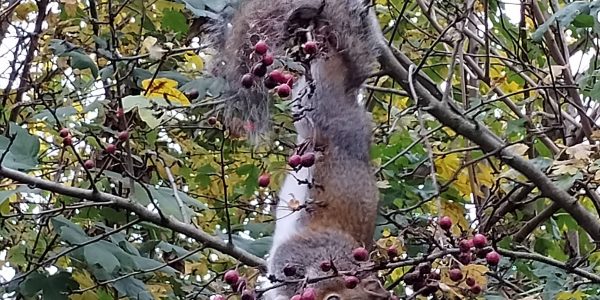‘It’s not a retoot is it?’ Moving between platforms and languages
November 11, 2022
The question in the title was asked by Aris Katzourakis on Mastodon, the now well-known decentralized social network built on open web standards by a non-profit. In this little post I’ll tell the story of how I came to explore a new social world, including a new language. *** I joined Twitter about a decade …
What’s in a name? On embryology, developmental biology and discipline naming
October 24, 2022
Last week Philip Ball asked an interesting question on Twitter which provoked a lot of responses and comments: “when did ‘embryology’ start to become ‘developmental biology’? I bet Philip will post an excellent answer to that question soon. I am not Philip and I am not a historian of biology; I am just a magpie. …
Asteroids: Angst, amazement and avarice
October 14, 2022
On planet earth it is extremely difficult to change people’s, especially politicians’, behaviour to avert, say, climate catastrophe. Not so in space. Here humans boldly achieve the unthinkable, namely changing the motion of something that’s going in a dangerous direction. What I am talking about is, of course, NASA’s “first-ever mission dedicated to investigating and …
Andrea Wulf’s ‘Magnificent Rebels’ (2022)
September 23, 2022
The situation in this country and around the world is quite depressing and I wondered what could cheer me up. Then I started to read Andrea Wulf’s Magnificent Rebels: The First Romantics and the Invention of the Self and that did the trick (I had previously read her biography of Alexander von Humboldt and enjoyed that too). …
Tipping point
September 16, 2022
Over the past 15 years or so, the use of the term ‘tipping point’ has exploded in the scientific literature. My current interest was sparked by a new paper on tipping points published in Science. The lead author is David Armstrong McKay, a University of Exeter Earth systems scientist, and the paper is an update …



![Hand-painted Kintsugi pottery bowl. Wikimedia Commons [Kintsugi, also known as kintsukuroi, is the Japanese art of repairing broken pottery by mending the areas of breakage with lacquer dusted or mixed with powdered gold, silver, or platinum]](https://blogs.nottingham.ac.uk/makingsciencepublic/files/2022/11/Hand_Pinted_Kintsugi_Pottery_Bowl-240x120.jpg)






